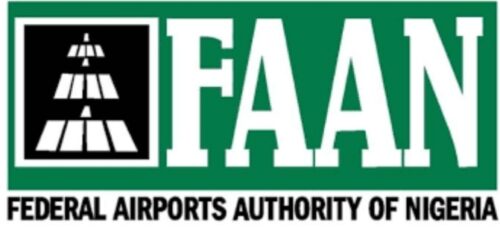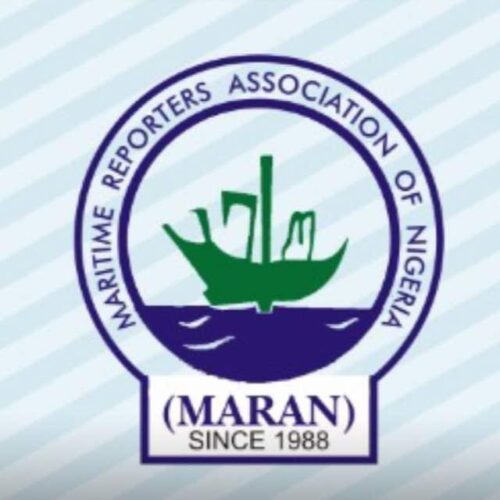NAGAFF Issues 7 Point Recommendation to NASS on Repeal/Re-enactment of Shippers’ Council Act

The National Association of Government Approved Freight Forwarders (NAGAFF) has written a seven-point-recommendation to the members of the House Committee on Shipping of the Nigerian National Assembly.
The move is in response to the later’s wide consultations on the repeal of the Shippers’ Council Act to re-enact the Nigeria Shipping and Port Economic Regulatory Agency (NISPERA) Bill and Related Matters.
While acknowledging the urgent need to put in place an economic regulatory agency for the shipping sector, NAGAFF President, Mr. Tochukwu Ezisi, thanked the NASS for the bold initiative of expediting legislation to empowers the Council to regulate the shipping activities in the country.
This, he said, would curb the excesses of port concessioners and shipping companies and make for greater efficiency and accountability in the sector.
In a letter to the Members of the National Assembly titled: “RE -NIGERIA SHIPPER’S COUNCIL ACT (REPEAL AND ENACTMENT) BILL 2023; REVIEW,
RECOMMENDATION AND THE POSITION OF FREIGHT FORWARDERS IN NIGERIA THROUGH NAGAFF” Ezisi prayed the NASS to consider the following:
1) EXCLUSION OF FREIGHT FORWARDERS FROM REGULATORY POWERS OF THE NIGERIA
SHIPPING AND PORT ECONOMIC REGULATORY AGENCY (SECTION 4 (1C), PG C3307):
2)EXCLUSION OF SETTING TERMS, CONDITIONS, FEES, AND LICENSING OF FREIGHT
FORWARDERS (SECTION 4(1I), PG C3308):
3)REPRESENTATION ON THE BOARD (SECTION 6 (1C& 1E), PG C3310):
4)OPPOSITION TO THE 3% CHARGE ON MPORT AND EXPORT CARGO (SECTION 28 (2C), PG
C3319):
5)SUPPORT FOR REGULATION OF TARIFFS AND CHARGES (SECTON 36 (1A& 1B), PG C3323):
6)MODIFICATION OF PENALTYFOR NONCOMPLIANCE (SECTION 37 (1&2), PG C3323):
7)MANDATORY JOINT COMMITTEE FOR TARIFF REVIEW (SECTION 37 (1&2), PG C3324):
In his argument for the consideration of the recommendations above, Ezisi pointed that Freight Forwarders were already under the regulation of the Council for the Regulation of Freight Forwarding in Nigeria (CRFFN) and subjecting them to the Nigeria Shipping and Port Economic Regulatory Agency (NISPERA) in the future would be a duplication of function.
He said: “We ardently advocate for the exclusion of Freight Forwarders from the regulatory jurisdiction of the
Nigeria Shipping and Port Economic Regulatory Agency (NISPERA) as our sector is already regulated by the
Council for the Regulation of Freight Forwarding in Nigeria (CRFFN) under Act 16 of 2007.
“This stance highlights the need for regulatory clarity and coherence within the shipping and port Industry. f freight forwarders are already subject to regulation by CRFFN, subjecting them to additional oversight by NISPERA will lead to unnecessary duplication of efforts and regulatory burdens.
“With this exclusion, there will be a streamlined regulatory framework that avoids redundancy and
ensures that regulatory responsibilities are appropriately allocated among relevant authorities.
On licensing fees and charges, he noted that CRFFN already governs fees for the freight forwarding industry and accredits Freight Forwarders. Hence, he suggested that the bills exonerate Freight Forwarders additional charges.
Also, he added that the “appointment of at least two Freight Forwarder nominated from the National Association of Government Approved Freight Forwarders (NAGAFF) and Association of Nigerian Licensed Customs Agents (ANLCA) as Executive Directors, and at least two Freight Forwarders as part-time Board members to ensure robust representation and fair consideration of the Freight Forwarding industry’s Interests.
“We vehementy oppose the proposed imposition of a 3% charge on import and export cargo, as it contradicts the fundamental objective of regulating tariffs, rates, and charges to prevent arbitrary
practices and breaches of the WTO Trade Facilitation Agreement.
Other submissions held on the seven-point-agenda include the endorsement of the provision empowering the Agency to estabish guidelines on tariffs, rates, and charges, contingent upon thorough consultation with stakeholders.
The implementation of a graded penalty system for non-compliance, encompassing warnings, fines, and potential suspension, commensurate with the severity and recurrence of
violations and the establishment of a mandatory joint committee comprising the Agency, Freight Forwarders, and other stakeholders to oversee and ensure the fairness and transparency of tariff reviews and adjustments.






